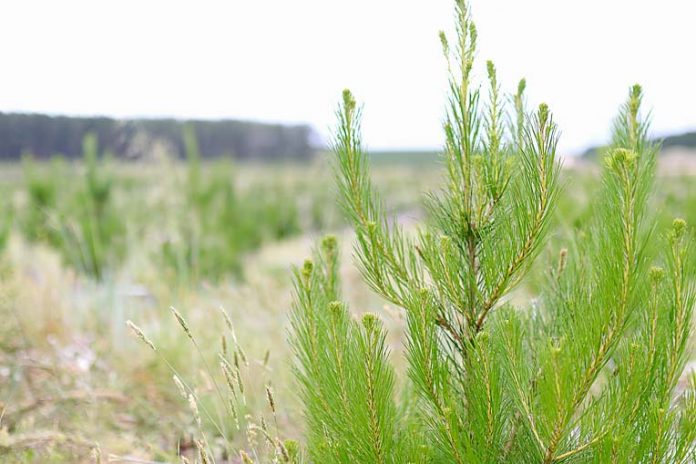THE region’s largest plantation owner has warned proposed changes to water management zones could potentially lead to a 12.5pc reduction in its plantation estate, which would impact on the amount of woodfibre flowing to regional processors.
OneFortyOne Plantations (OFO) have joined the chorus of concern flowing from the region’s forestry sector over the possibility of looming cuts.
OFO executive general manager Australia Cameron MacDonald said the industry needed to expand the forestry estate to fuel growth in the sector.
“The underlying issue going forward is that despite all the processing expansion the forests have not expanded for years,” said Mr MacDonald, who recently addressed a Grant District Council meeting on the issue.
“Any water licence reductions will have a serious impact on all the Green Triangle forests, not just the OneFortyOne estate.”
It is estimated OFO would lose 1.1pc of its forestry estate with the current water management zones, which was calculated at 21,651m3 of fibre.
“If the proposed changes are implemented, then we could lose 5.9pc which equates to 111,779m3 – this is the equivalent volume we would supply to two small local mills,” Mr MacDonald said.
“The most aggressive water management zones changes could potentially lead to a 12.5pc reduction in area – 237,474 m3 of fibre that is no longer available to local mills.”
With OneFortyOne only having a 24pc share of the regional forestry estate, he warned other forest growers were facing the same prospects.
“This is a serious problem that will impact everyone in the industry and our region,” Mr MacDonald said.
He said the forestry sector was working with the industry and UniSA to review the science and ensure that any water policy was formed from “sound science” that would help move the industry forward for everyone in the supply chain.
“Regional processing capacity for sawlog has significantly increased over the past few years following investment from the State Government and investment by processors themselves,” the OFO chief
explained.
He said 100pc of “sawlog” from the OneFortyOne estate was committed to existing domestic customers.
“Forests are a finite resource and our focus is on supporting current capacity and not compromising long term sustainability,” Mr MacDonald said.
“We established our export market for a different product – pulplog. It was established in 2013 following the closure of Kimberly-Clark pulpmill.”
The existence of the Kimberly-Clark pulpmill as well as post and pole producers meant there was no need for an extensive export market.
“However, there is currently no existing local mill that can process the significant volume of pulplog that was once processed locally by Kimberly-Clark.”








